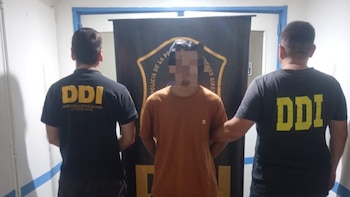
The European Union Electoral Observation Mission (EU EOM) in Colombia warned that the discrepancy between the results of the pre-counting of votes in the legislative elections and those that became known after the first stage of the ballot “has been unusually large.”
This was reported by MEP Javi López, who serves as president of the EOM of the European Union in the country, in a statement from the Mission in which he noted considerable differences in the scrutiny consolidated by the National State Registry in which several changes in the conformation of Congress were evidenced.
“Above all, for some parties and coalitions, such as the Historical Pact, which, when presenting closed lists, were harmed in the design of the results reports, forms E-14 ″, the Mission indicated that it carried out a follow-up to the legislative elections in the national territory, which have been questioned by multiple irregularities.
In this regard, the EOM of the European Union indicated that the design of the E-14, which has been strongly criticized in past elections, is “extremely complex and very error-prone”, which had contributed to the fact that the results of these collectivities at various tables had not been broadcast on the night of March 13th, which is why they were not translated in the pre-count.
In turn, they pointed out that the pre-counting is not an official process and that its value is purely informative, clarifying that the official results are what the scrutiny gives. In turn, the Mission indicated that it evidenced countless transcription failures of the E-14 during the counting phase, which it has communicated to the Registrar, which is why which recommended that a system of double recording of records be implemented in the forthcoming elections in order to quickly identify and correct deficiencies.
On the other hand, he pointed out that the electoral authorities have transparency tools in order to identify irregularities between the results recorded in the minutes and those of the counting, and to propose them to the counting committees so that they can be addressed and resolved.
“It is important that candidates come to these committees with their doubts and complaints, and that the committees devote, as our observation indicates they have done so far, to the time necessary for the connection of any errors or inaccuracies of the results,” said the EOM of the European Union.
Finally, he indicated that he will continue his process of observation to the poll until it is completed and that it will carry out its work during the presidential elections to be held on May 29, however, these statements by the EU EOM coincide with those of the National Observation Mission, which showed irregularities in the process of counting votes.
For his part, researcher Juan Pappier, who is part of the Americas division of Human Rights Watch (HRW), also expressed concerns in the process of counting votes in the country, which has been denounced by various communities and coalitions, which have expressed their disagreements with the process that they have described as a “electoral fraud”.
“Colombia: We are concerned about the serious errors in the pre-counting of votes. The Registrar should give a thorough explanation and take steps to ensure that this does not happen again. Authorities and candidates must help ensure trust in the voting system,” said HRW researcher Pappier.
KEEP READING
Últimas Noticias
Debanhi Escobar: they secured the motel where she was found lifeless in a cistern
Members of the Specialized Prosecutor's Office in Nuevo León secured the Nueva Castilla Motel as part of the investigations into the case

The oldest person in the world died at the age of 119
Kane Tanaka lived in Japan. She was born six months earlier than George Orwell, the same year that the Wright brothers first flew, and Marie Curie became the first woman to win a Nobel Prize

Macabre find in CDMX: they left a body bagged and tied in a taxi
The body was left in the back seats of the car. It was covered with black bags and tied with industrial tape
The eagles of America will face Manchester City in a duel of legends. Here are the details
The top Mexican football champion will play a match with Pep Guardiola's squad in the Lone Star Cup

Why is it good to bring dogs out to know the world when they are puppies
A so-called protection against the spread of diseases threatens the integral development of dogs



